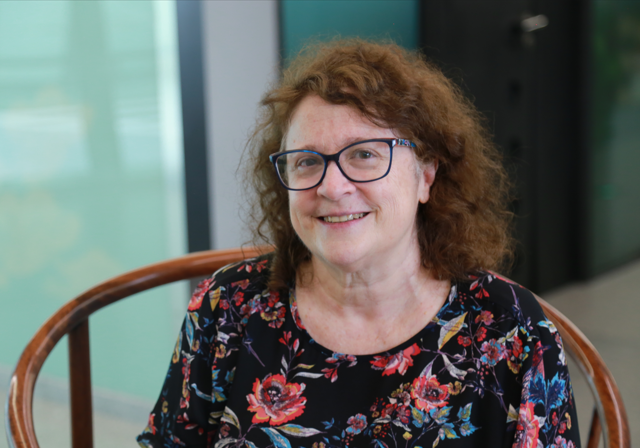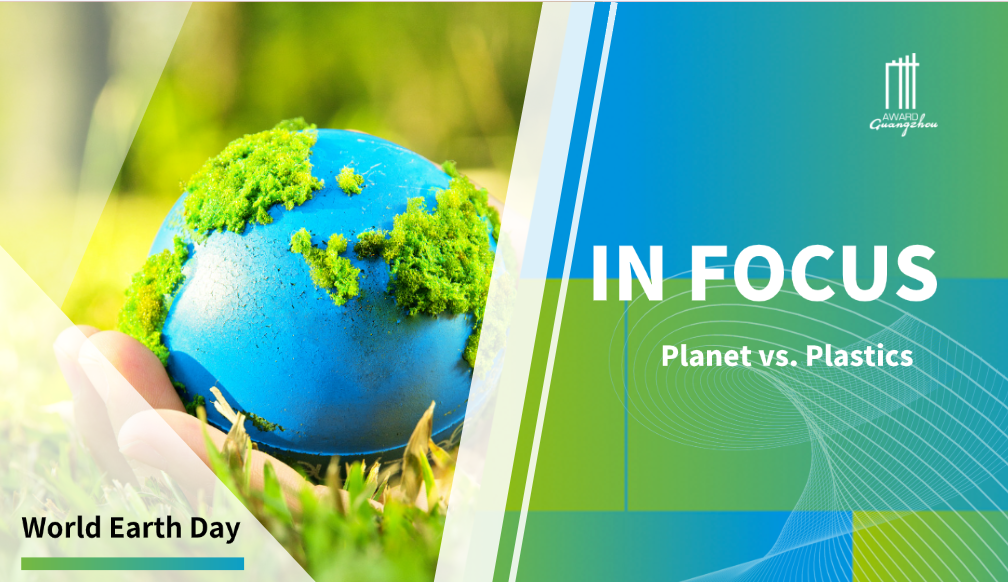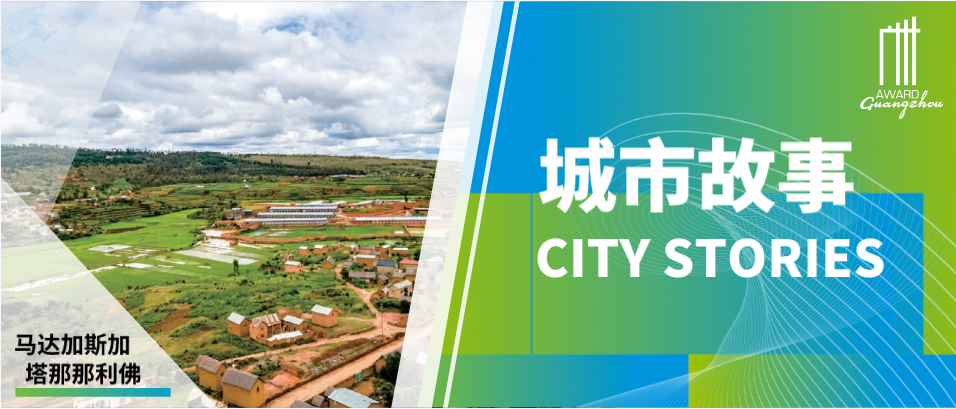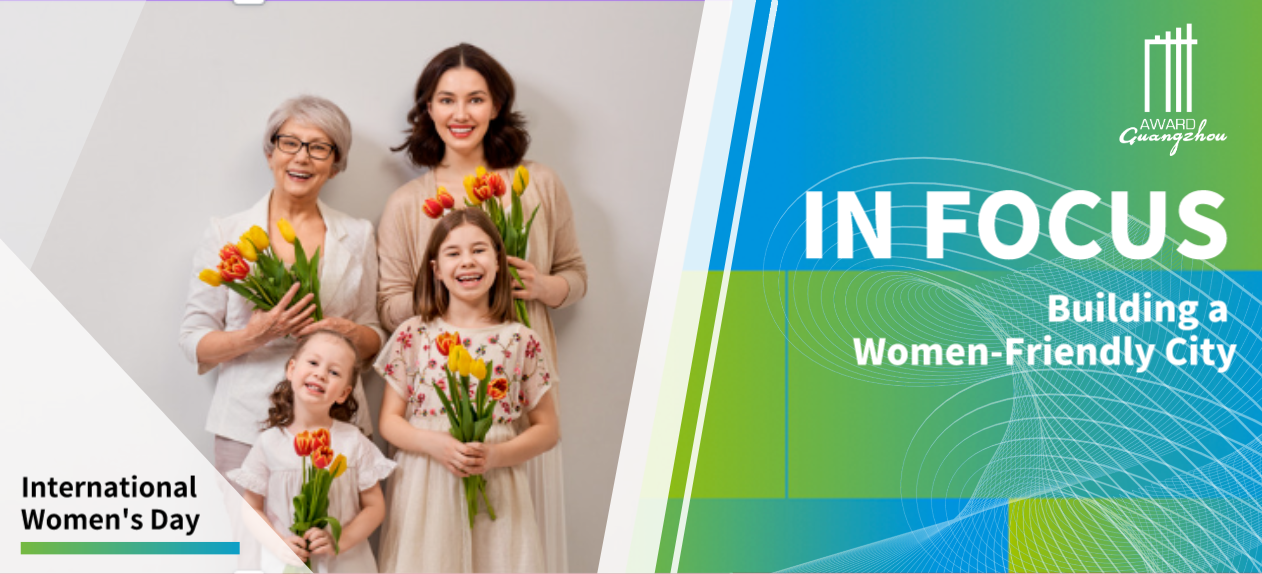Robin King: Good Initiatives Are Built on Past Knowledge and Experience
“Good initiatives are built on past knowledge and experience. That experience can be a success, but can also be a failure,” said Robin King, Director of Knowledge Capture & Collaboration at WRI Ross Center for Sustainable Cities. “It is very important to contextualize these experiences after really understanding the local context for urban projects.”
The World Resources Institute (WRI) was founded in 1982 as an independent global think tank and action bank. It is committed to providing reference and support for scientific decision-making and to affecting change around the world through pioneering research-based approaches, a large and diverse data platform and a keen and objective analysis viewpoint. WRI has nearly 1,800 staff around the world, with country offices in 12 countries and regions.
The official release of the 15 shortlisted cities of the 6th Guangzhou Award has brought many new urban innovation initiatives into public view. Recently, Robin King, Director of Knowledge Capture and Collaboration at WRI Ross Center for Sustainable Cities, received an interview from us. She said that the Guangzhou Award is a platform for the mutual learning of global cities, and she hopes to learn more about the innovative lessons in Guangzhou and in Guangdong itself, and in the whole Bay Area.

Guangzhou Award: This is your first time to serve as a member of TC of the Guangzhou Award. What is your general impression?
Robin: It is a very well-organized process. The Technical Committee brings people with lots of experience from very different parts of the world in very different backgrounds together. So the negotiation process has been very rich -- with a lot of us drawing on our experience with different kinds of projects in different parts of the world. Bringing everybody together to come to a consensus has been an interesting process. I'm really happy to meet the other members of the Committee. That was one of the things that I thought would be interesting, and it really has been.
Guangzhou Award: What qualities do you think make for a good initiative in urban innovation?
Robin: What you want to do is to build on knowledge and experiences from the past. And that experience can be a success, like good practices. But it also can be a failure, or things that didn't work out someplace. And then it is very important to contextualize these experiences after really understanding the local context for urban projects, including the history, the political economy, and who represents what kinds of interests and how to work with those different interests, so as to move things forward.
You would like to see projects that have financing, political support, and initial results. I mean, one of the challenges in this space is that often we have expectations to see results instantaneously, but a lot of these things take a long time to actually see the results. In addition, you want results that will be sustainable and last over time. So you want to see institutionalization and legal formats so that it is legal to do the kinds of things that are successful and useful.
Guangzhou Award: According to the initiative that you have seen in the past few days, what are the new trends of urban innovation?
Robin: Actually, many of us were surprised at some of the urban innovative cases, but also at the absence of the cases that we thought would be. Because most of us work in this space, we see a lot of things dealing with ecosystems, resilience, migration, and climate change. There are also projects talking about some other things, including projects dealing with social challenges like violence prevention, which is incredibly important in many countries and regions, especially in Latin America, for example, which is a region that I work in. There were also many things dealing with women, children and older people. It was nice to see some of them talking about it, especially as society is aging in many of the biggest countries in the world.
We can also ensure that culture and history are paid attention to and not wiped aside and we learn from history. We think about our cultures and are not rushing to homogenization around the world or countries. Diverse regions and languages are increasing as in China and the U.S. What somebody does in the north is very different from somebody in the south. And so, it is crucial that we understand the context and look at what the experience has been within the context while trying to think about what we can learn and generalize from that, and how can they be localized and contextualized in different ways.
Guangzhou Award: How do you think the Guangzhou Award can help cities and regions to further communicate and exchange knowledge and experience?
Robin: This is where the structure is. It is really helpful to have the 45 finalists or case studies that we can learn from. And then the 15 semi-finalists or finalists from which the jury will select the top five. There are more than five that we can learn from, and the idea of really using that collection of top projects to learn from our top initiatives is very important.
I think one of the goals of this award and other similar awards in other places around the world, is to create a community for people who are interested in these topics and want to share to learn from each other. It can also be a model for other cities to learn about what can work, and for folks to share the experience, to figure out how they can apply some of these approaches in different kinds of contexts.
What I would like to see more with the award is what Guangzhou itself has done. Because Guangzhou is a very impressive city and is innovated in lots of different ways. I think Guangzhou can win its own award, for there are very interesting projects and initiatives here that we should all be able to learn from. And so I hope that we'd be able to learn more about what has actually worked and been tried here in Guangzhou and in Guangdong itself and in the whole Bay Area, which can be learned from for us around the world.
Guangzhou Award: In this cycle of the Guangzhou Award, are there any initiatives that strongly impress you?
Robin: There were several cases that I thought were very impressive. I'll start with Latin America. Several cases were talking about having community centers in Mexico, Brazil and Columbia that could draw on culture, sports and sporting activities to bring youth something to do so that they won’t get captured in crime activities. That is a sort of violence prevention. It can tap their energy with sports and culture so that folks can learn about things. I thought it was something that's been tried in Colombia. And now it is applied in other parts of Columbia, in Brazil and Mexico.
There was a program in Brazil on the legalization of activities of informal workers and informal sectors, that struck me as very innovative, interesting and important because so many active economic activities take place in the informal sector. Workers who can provide great services to the informal sector were sometimes taken advantage of. So, having a structure to make that less exploitative is very good.
There were some great projects in Ramallah, in Palestine, of, again, incorporating older folks, tapping into their energy and knowledge, and giving them a role to use their knowledge to share with younger generations, especially displaced people. That's very, very important.
Many projects looked at geographic information systems or smart city approaches of trying to systematize data and information, although not in all cases, so that planners have a better idea of how to target initiatives and growth and to shape growth in a way that's more environmentally sustainable and can also help users and citizens access information and process things more efficiently.
And there were several of those projects that I liked. They looked at the sustainable development goals and different ways of localizing them, and in some places tying that to regeneration projects.
The challenge is there are so many cases that we can't include them all in the shortlist. In some cases, some projects were good ideas, but they still needed a little bit more time to mature and show more of an impact that I would hope would come back again in the future, when they have a better chance of winning.
-
 In Focus | The World Earth Day: Planet vs. Plastics
In Focus | The World Earth Day: Planet vs. Plastics -
 Urban Innovation in China | Shenzhen: How to Maintain Momentum to Achieve Carbon Peak by 2030 While Leading Green and Low-Carbon Development?
Urban Innovation in China | Shenzhen: How to Maintain Momentum to Achieve Carbon Peak by 2030 While Leading Green and Low-Carbon Development? -
 City Stories | Antananarivo, Madagascar: Building Resilience in the City Food System
City Stories | Antananarivo, Madagascar: Building Resilience in the City Food System -
 In Focus | International Women’s Day: Building a Women-Friendly City
In Focus | International Women’s Day: Building a Women-Friendly City























 Tel: +86 20 3780 4434
Tel: +86 20 3780 4434 Email: info@guangzhouaward.org
Email: info@guangzhouaward.org Address: Rm 1609, FuLiXinTianDi, No.307 Guangzhou Dadao Zhong, Yuexiu District, Guangzhou, Guangdong, 501600, PRC
Address: Rm 1609, FuLiXinTianDi, No.307 Guangzhou Dadao Zhong, Yuexiu District, Guangzhou, Guangdong, 501600, PRC




